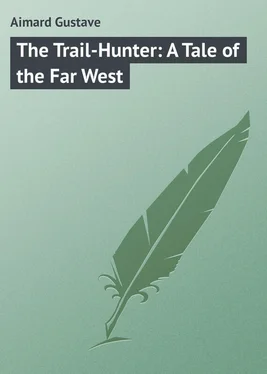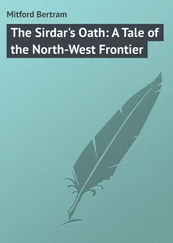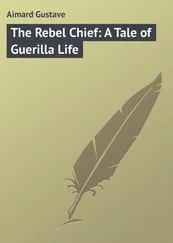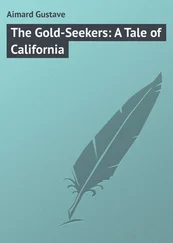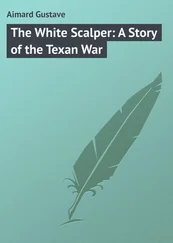Gustave Aimard - The Trail-Hunter - A Tale of the Far West
Здесь есть возможность читать онлайн «Gustave Aimard - The Trail-Hunter - A Tale of the Far West» — ознакомительный отрывок электронной книги совершенно бесплатно, а после прочтения отрывка купить полную версию. В некоторых случаях можно слушать аудио, скачать через торрент в формате fb2 и присутствует краткое содержание. Жанр: foreign_prose, на английском языке. Описание произведения, (предисловие) а так же отзывы посетителей доступны на портале библиотеки ЛибКат.
- Название:The Trail-Hunter: A Tale of the Far West
- Автор:
- Жанр:
- Год:неизвестен
- ISBN:нет данных
- Рейтинг книги:3 / 5. Голосов: 1
-
Избранное:Добавить в избранное
- Отзывы:
-
Ваша оценка:
- 60
- 1
- 2
- 3
- 4
- 5
The Trail-Hunter: A Tale of the Far West: краткое содержание, описание и аннотация
Предлагаем к чтению аннотацию, описание, краткое содержание или предисловие (зависит от того, что написал сам автор книги «The Trail-Hunter: A Tale of the Far West»). Если вы не нашли необходимую информацию о книге — напишите в комментариях, мы постараемся отыскать её.
The Trail-Hunter: A Tale of the Far West — читать онлайн ознакомительный отрывок
Ниже представлен текст книги, разбитый по страницам. Система сохранения места последней прочитанной страницы, позволяет с удобством читать онлайн бесплатно книгу «The Trail-Hunter: A Tale of the Far West», без необходимости каждый раз заново искать на чём Вы остановились. Поставьте закладку, и сможете в любой момент перейти на страницу, на которой закончили чтение.
Интервал:
Закладка:
Don Miguel, however, had not succeeded so fully as he imagined. Red Cedar was not dead, for the old bandit kept a firm hold on life. Attacked unawares, the squatter had not attempted a resistance, which he saw at the first glance was useless, and would only have exasperated his adversary. With marvellous sagacity, on feeling the knife blade enter his body, he stiffened himself against the pain, and resolved on "playing 'possum;" that is to say, feigning death. The success of his stratagem was complete. Don Miguel, persuaded that he had killed him, did not dream of repeating his thrust.
So long as his enemy remained in the jacal the squatter was careful not to make the slightest movement that might have betrayed him; but, so soon as he was alone, he opened his eyes, rose with an effort, drew the dagger from the wound, which emitted a jet of black blood, and looking at the door, through which his assassin had departed, with a glance so full of hatred that it is impossible to describe, he muttered, —
"Now we are quits, Don Miguel Zarate, since you have tried to take back the life of him you saved. Pray God never to bring us face to face again!"
He uttered a deep sigh, and rolled heavily on the ground in a fainting fit. At this moment his sons entered the cabin.
CHAPTER X
THE SACHEM OF THE CORAS
A few days after the events we have described in the previous chapter there was one of those lovely mornings which are not accorded to our cold climates to know. The sun poured down in profusion its warm beams, which caused the pebbles and sand to glisten in the walks of the garden of the Hacienda de la Noria. In a clump of flowering orange and lemon trees, whose sweet exhalations perfumed the air, and beneath a copse of cactus, nopals, and aloes, a maiden was asleep, carelessly reclining in a hammock made of the thread of the Phormium tenax, which hung between two orange trees.
With her head thrown back, her long black hair unfastened, and falling in disorder on her neck and bosom; with her coral lips parted, and displaying the dazzling pearl of her teeth, Doña Clara (for it was she who slept thus with an infantile slumber) was really charming. Her features breathed happiness, for not a cloud had yet arisen to perturb the azure horizon of her calm and tranquil life.
It was nearly midday: there was not a breath in the air. The sunbeams, pouring down vertically, rendered the heat so stifling and unsupportable, that everyone in the hacienda had yielded to sleep, and was enjoying what is generally called in hot countries the siesta. Still, at a short distance from the spot where Doña Clara reposed, calm and smiling, a sound of footsteps, at first almost imperceptible, but gradually heightening, was heard, and a man made his appearance. It was Shaw, the youngest of the squatter's sons. How was he at this spot?
The young man was panting, and the perspiration poured down his cheeks. On reaching the entrance of the clump he bent an anxious glance on the hammock.
"She is there," he murmured with a passionate accent. "She sleeps."
Then he fell on his knees upon the sand, and began admiring the maiden, dumb and trembling. He remained thus a long time, with his glance fixed on the slumberer with a strange expression. At length he uttered a sigh and tearing himself with an effort from this delicious contemplation, he rose sadly, muttering in a whisper, —
"I must go – if she were to wake – oh, she will never know how much I love her!"
He plucked an orange flower, and softly laid it on the maiden; then he walked a few steps from her, but almost immediately returning, he seized, with a nervous hand, Doña Clara's rebozo, which hung down from the hammock, and pressed it to his lips several times, saying, in a voice broken by the emotion he felt, —
"It has touched her hair."
And rushing from the thicket, he crossed the garden and disappeared. He had heard footsteps approaching. In fact, a few seconds after his departure, Don Miguel, in his turn, entered the copse.
"Come, come," he said gaily, as he shook the hammock, "sleeper, will you not have finished your siesta soon?"
Doña Clara opened her eyes, with a smile.
"I am no longer asleep, father," she said.
"Very good. That is the answer I like."
And he stepped forward to kiss her; but, with sudden movement, the maiden drew herself back as if she had seen some frightful vision, and her face was covered with a livid pallor.
"What is the matter with you?" the hacendero exclaimed with terror.
The girl showed him the orange flower.
"Well," her father continued, "what is there so terrific in that flower? It must have fallen from the tree during your sleep."
Doña Clara shook her head sadly.
"No," she said: "for some days past I have always noticed, on waking a similar flower thrown on me."
"You are absurd; chance alone is to blame for it all. Come, think no more about it; you are pale as death, child. Why frighten yourself thus about a trifle? Besides the remedy may be easily found. If so afraid of flowers now, why not take your siesta in your bedroom, instead of burying yourself in this thicket?"
"That is true, father," the girl said, all joyous, and no longer thinking of the fear she had undergone. "I will follow your advice."
"Come, that is settled, so say no more about it. Now give me a kiss."
The maiden threw herself into her father's arms, whom she stifled with kisses. Both sat down on a grassy mound, and commenced one of those delicious chit-chats whose charm only those who are parents can properly appreciate. Presently a peon came up.
"What has brought you?" Don Miguel asked.
"Excellency," the peon answered, "a redskin warrior has just arrived at the hacienda, who desires speech with you."
"Do you know him?" Don Miguel asked.
"Yes, Excellency; it is Eagle-wing, the sachem of the Coras of the Rio San Pedro."
"Mookapec! (Flying Eagle)" the hacendero repeated with surprise. "What can have brought him to me? Lead him here."
The peon retired and in a few minutes returned, preceding Eagle-wing.
The chief had donned the great war-dress of the sachems of his nation. His hair, plaited with the skin of a rattlesnake, was drawn up on the top of his head; in the centre an eagle plume was affixed. A blouse of striped calico, adorned with a profusion of bells, descended to his thighs, which were defended from the stings of mosquitoes by drawers of the same stuff. He wore moccasins made of peccary skin, adorned with glass beads and porcupine quills. To his heels were fastened several wolves' tails, the distinguishing mark of renowned warriors. Round his loins was a belt of elk hide, through which passed his knife, his pipe and his medicine bag. His neck was adorned by a collar of grizzly bear claws and buffalo teeth. Finally, a magnificent robe of a white female buffalo hide, painted red inside, was fastened to his shoulders, and fell down behind him like a cloak. In his right hand he held a fan formed of a single eagle's wing, and in his left hand an American rifle. There was something imposing and singularly martial in the appearance and demeanor of this savage child of the forest.
On entering the thicket, he bowed gracefully to Doña Clara, and then stood motionless and dumb before Don Miguel. The Mexican regarded him attentively, and saw an expression of gloomy melancholy spread over the Indian chief's features.
"My brother is welcome," the hacendero said to him. "To what do I owe the pleasure of seeing him?"
The chief cast a side glance at the maiden. Don Miguel understood what he desired, and made Doña Clara a sign to withdraw. They remained alone.
"My brother can speak," the hacendero then said; "the ears of a friend are open."
Читать дальшеИнтервал:
Закладка:
Похожие книги на «The Trail-Hunter: A Tale of the Far West»
Представляем Вашему вниманию похожие книги на «The Trail-Hunter: A Tale of the Far West» списком для выбора. Мы отобрали схожую по названию и смыслу литературу в надежде предоставить читателям больше вариантов отыскать новые, интересные, ещё непрочитанные произведения.
Обсуждение, отзывы о книге «The Trail-Hunter: A Tale of the Far West» и просто собственные мнения читателей. Оставьте ваши комментарии, напишите, что Вы думаете о произведении, его смысле или главных героях. Укажите что конкретно понравилось, а что нет, и почему Вы так считаете.
